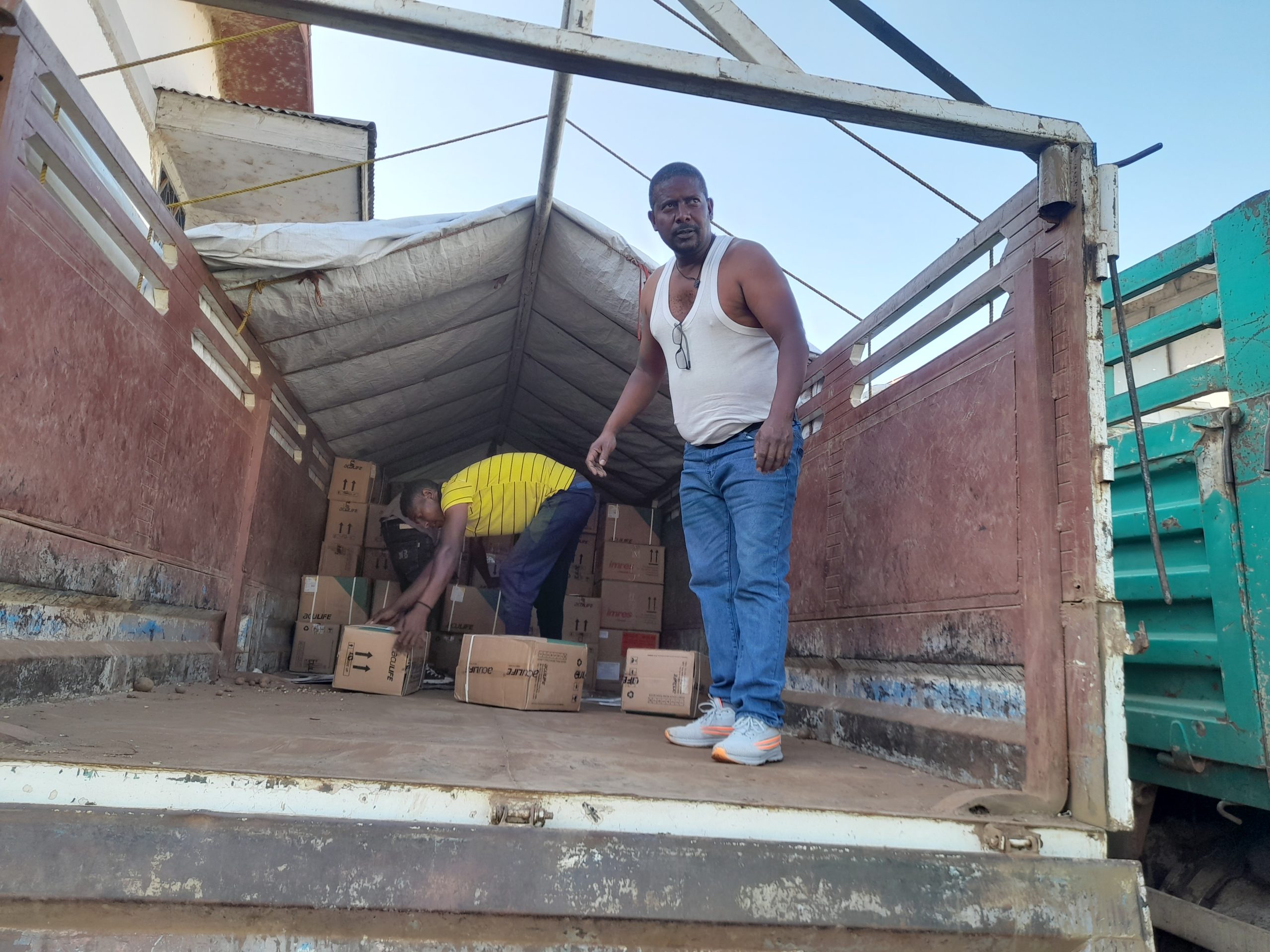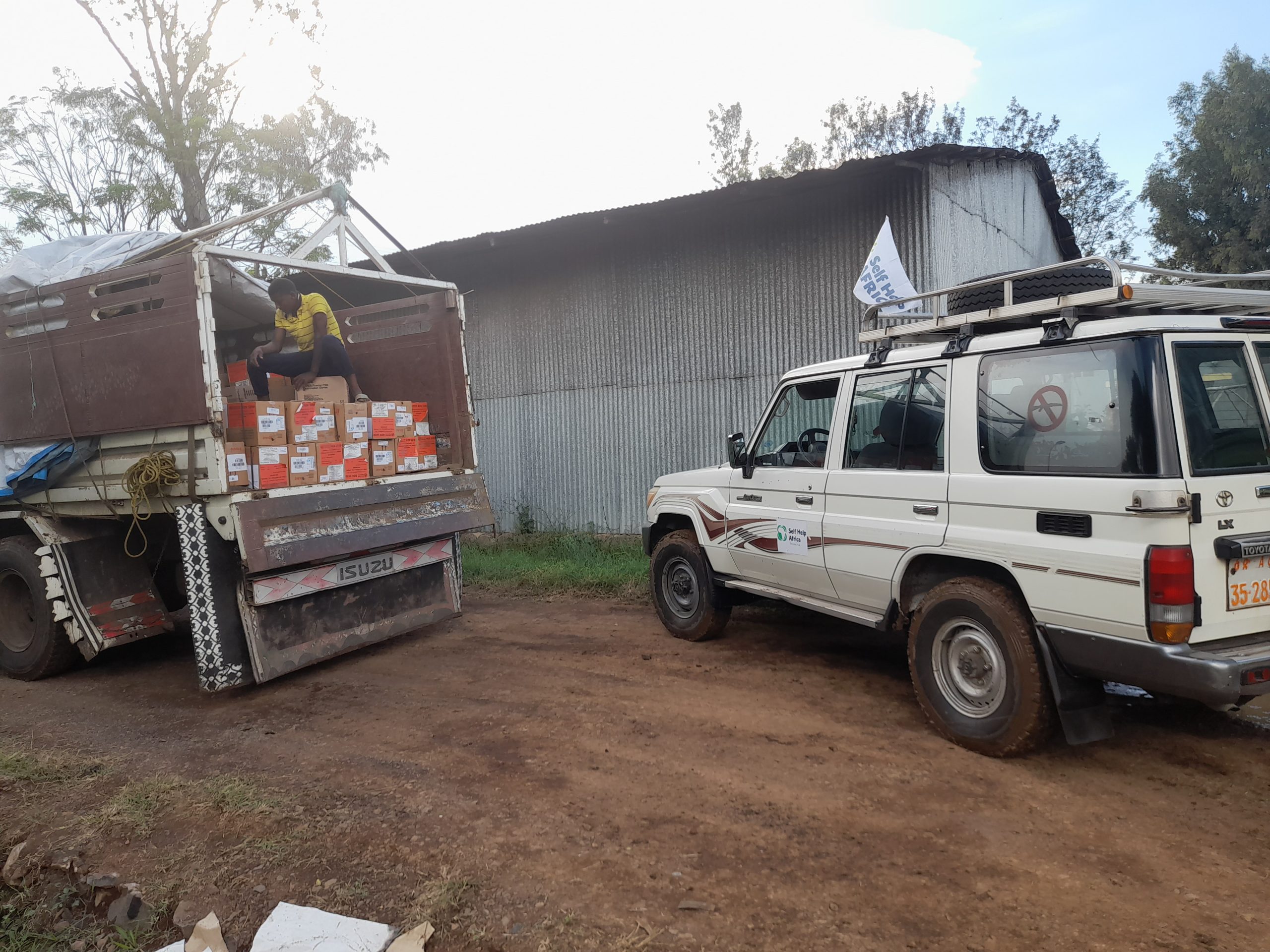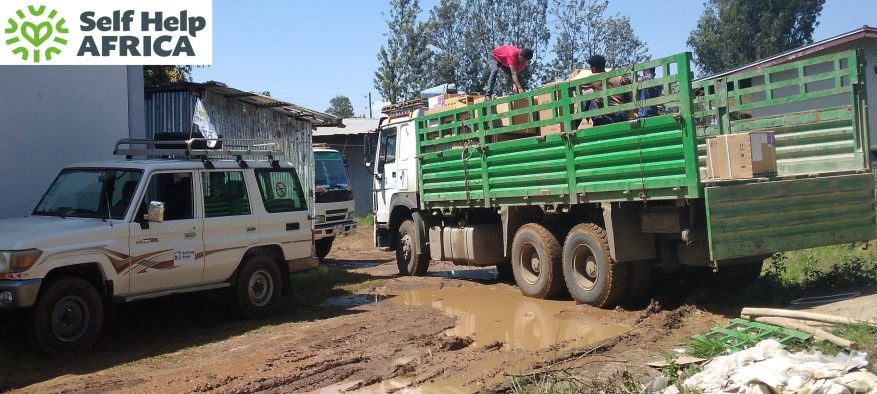Self Help Africa is delivering emergency aid and seeds to thousands of families in the grip of a food and security crisis in Ethiopia’s Amhara region.
Drought-like conditions, conflict and intercommunal violence, compounded by a malaria outbreak, have seen living conditions plummet and humanitarian needs soar in the region. Crops have failed, families have been displaced, the movement of people and aid has been restricted in some areas, and access to healthcare and health supplies remains limited.
In partnership with UNICEF, the World Health Organization and the Regional Health Bureau, our local team is using its logistics’ experience to help deliver life-saving aid kits – containing cholera, malaria and medical kits – to families and health facilities in conflict-affected South Gonder, East Gojam, West Gojam and Awi zones.
Having worked with rural farmers in Amhara for 40 years, we are also using our agricultural expertise to distribute 69 tonnes of seed to 3,200 farmers in 13 districts (known as ‘woredas’), with the World Food Programme.
“We hope the climate resilient seeds will enable particularly vulnerable farmers to kickstart their food production again, improving their families income but also their access, and their communities’ access, to nutritious food – something that’s crucial to helping address startling malnutrition rates, particularly among young children,” said Dinkneh Asfaw, Regional Director for Self Help Africa in Ethiopia.
The UN estimates 3.5 million people in the Amhara region alone are affected by drought-like conditions that have caused crops to fail. A lack of agricultural inputs for farmers, disease, pests and fighting are making food insecurity worse. The Government is implementing an emergency response with food aid but gaps remain.
Self Help Africa implemented a dozen development and humanitarian projects with local and international partners across Ethiopia. At the core of our work is increasing farm production, supporting new enterprise and developing market opportunities for farmers.
For more information visit our Ethiopia page.




